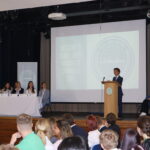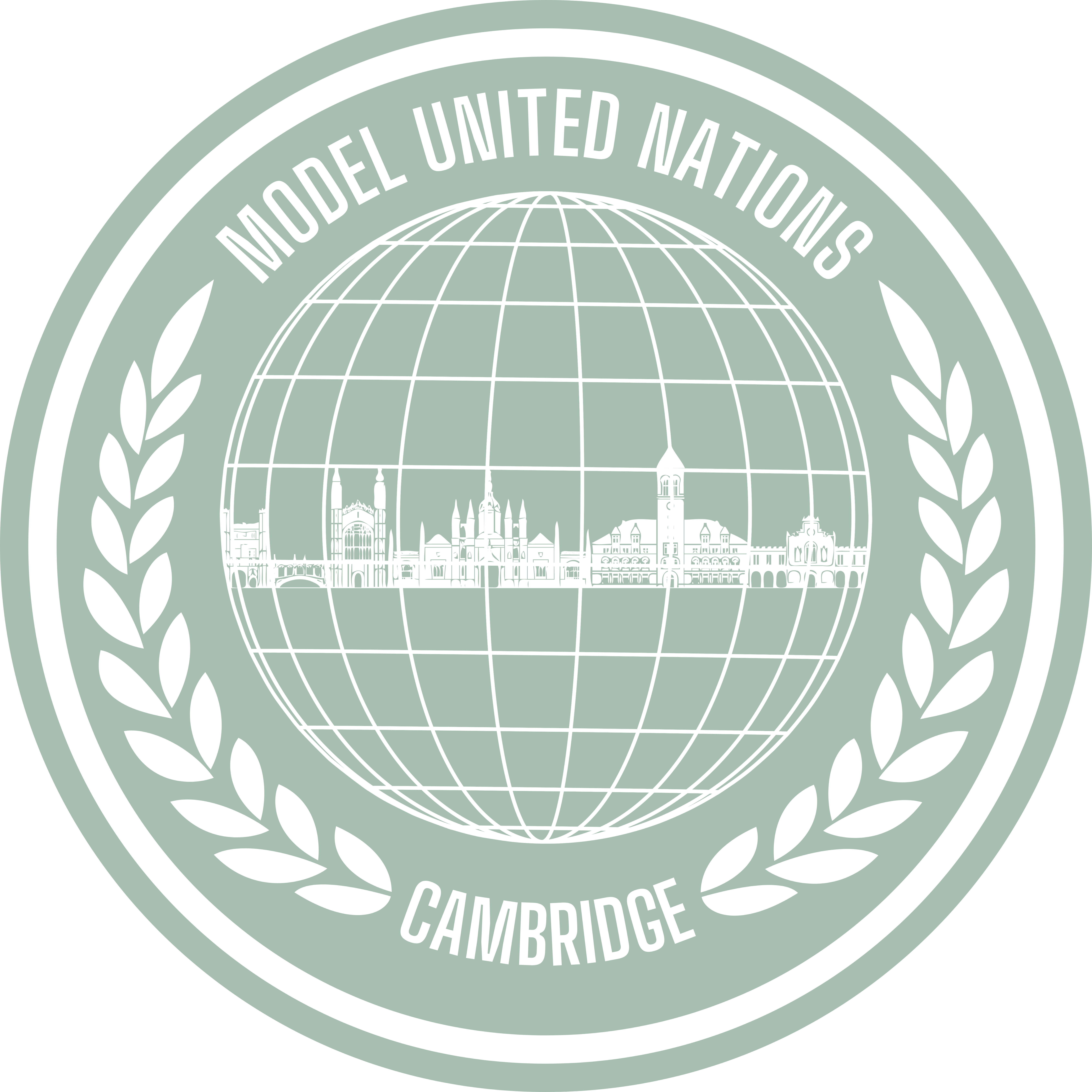The Resolution Round Up
Welcome to Munoc 2025
MUNoC DAY 1 – Wednesday 2nd July 2025

Day 1 at MUNoC done and dusted, lobbying done, resolutions debated, and secretariat met! It was eventful day to be sure, we hope you felt welcomed and looked after by our fabulous team. We are certain that there will be many more exciting moments to come. This Resolution Roundup will take you through the key events of today written by our very own MUNoC press team. Enjoy!
This year’s Model United Nations of Cambridge was opened by Secretary General, Imri Tal, by banging his gavel with authority, assumingly to set a precedent of organization and seriousness. He then dropped the gavel onto the floor as he was preparing to speak, which if the gavel didn’t give him the attention of the room, that definitely did. Despite this, he gave a convincing opening address, talking about the importance of events like this creating ‘fruitful ground for resolutions and agreements. He then called for the return of hostages, highlighting the matter’s importance by drawing on his own experience being an Israeli and seeing the current conflict Israel-Gaza conflict spiral to the point it is at now. It has changed the political landscape referring to now as times of ‘less and less cooperation’ and ‘division between countries’, a contrast to this time last year, The Resolution Roundup MUNoC DAY 1 Wednesday 2nd June 2025 “We are living in a post-truth world” – Imri Tal 2 when he first decided to head this year’s event. This made it all the more relevant and so he expressed gratitude to all those that had worked to make it happen.
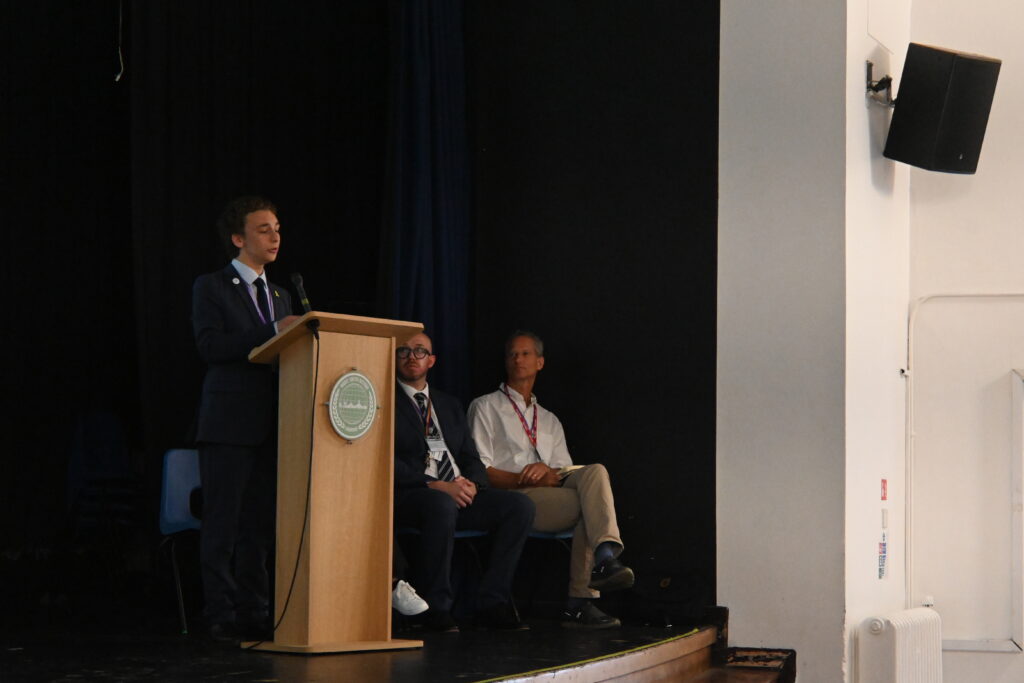
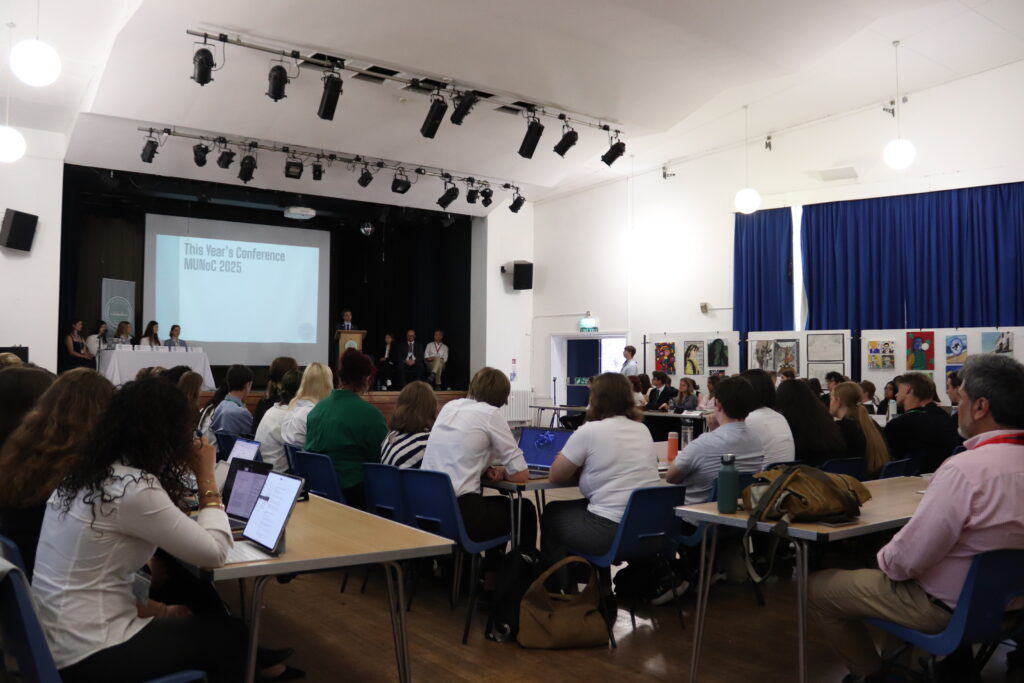
key-note speaker: David Lubin
We were lucky enough to have David Lubin, Senior Research Fellow of the Global Economy and former Head of Emerging Markets, who spoke at length about his specialist focus, China. First, he introduced how post World War II we have been living in an ‘international rules-based order’, rooted in integration and globalization and how this setup has been centered around American power to gain relevance. He claimed ‘the link between legitimacy and power is closer than one may think’ highlighting the role American strength supported this world order. The rise of China in the last 30 years has been a threat to this which can be seen by the fact that in 2000 the Chinese GDP was only 10% of the US, but this has risen to over 70% as of last year. This has led to unprecedented hostility shown by the US as can be seen by bipartisan agreement of China being the ‘most competitive threat’ to America and this hostility could be perceived as a shift away from our international rulesbased order and towards one that prioritizes ‘spheres of regional influence’, which would change the order of the world as we know it.
Ambassador's speeches
The Ambassadors of Nations have spoken out firmly on world peace, individual and global security especially in terms of nuclear disarmament and within the cyberspace. A tense environment was created within the assembly as some speeches raised questions on whether they were willing to compromise and coordination with other nations and to what extent they want to associate with certain countries.
A notable friction has been spotted between Israel and Palestine. Israel has expressed an uncooperative position saying that “what they do in their country is not anyone else’s business” and that they “firmly believe in the right to defend oneself especially when attacked”. Palestine has responded with the fact that they are a nation that has approximately 5.6 million refugees and many are unable to vote. The delegate of Palestine also posed the question “Who deserves to live?”
Both Pakistan and India believe in eradicating misinformation and believe that the other nation is subjecting their population to bias and believe in providing the unrepresented with voices, which creates a tension between the two countries. The Islamic republic of Pakistan believe that images and information should be ‘easily distinguished between fact and fiction’, as many images posted about the current conflict between Pakistan and India over the Kashmir region have been recycled from previous conflicts. India also believes in the nuclear disarmament of Pakistan. There were also tensions between the Ambassadors of Greece and Türkiye. The republic of Türkiye mentioned their hopes for freedom of their provinces, but also their struggle of being in between the western continents and Asia. They also stated “we are not in need of agitators, but rather mitigators…. and Turkey is one of these mitigators”. However, Hellenic republic (Greece), they stated that they support multilateral challenges and self-governing countries.
The Russian federation discussed the global mistrust created through ‘toxicity in media’ which caused disarmament and peace. Later, Ukraine mentioned the ‘fear towards nuclear weapons’ and the given ‘power towards them’ with the weapons also being a ‘catalyst for climate change’. They also mentioned the ‘reprimanding violation of human rights’ this caused a small tension between the two countries
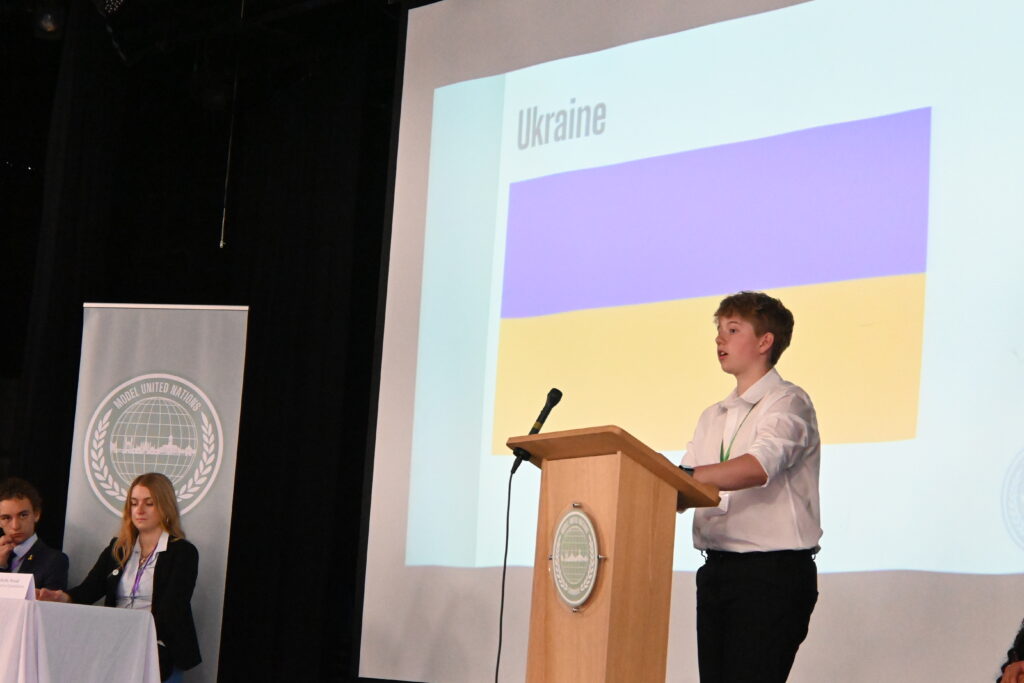
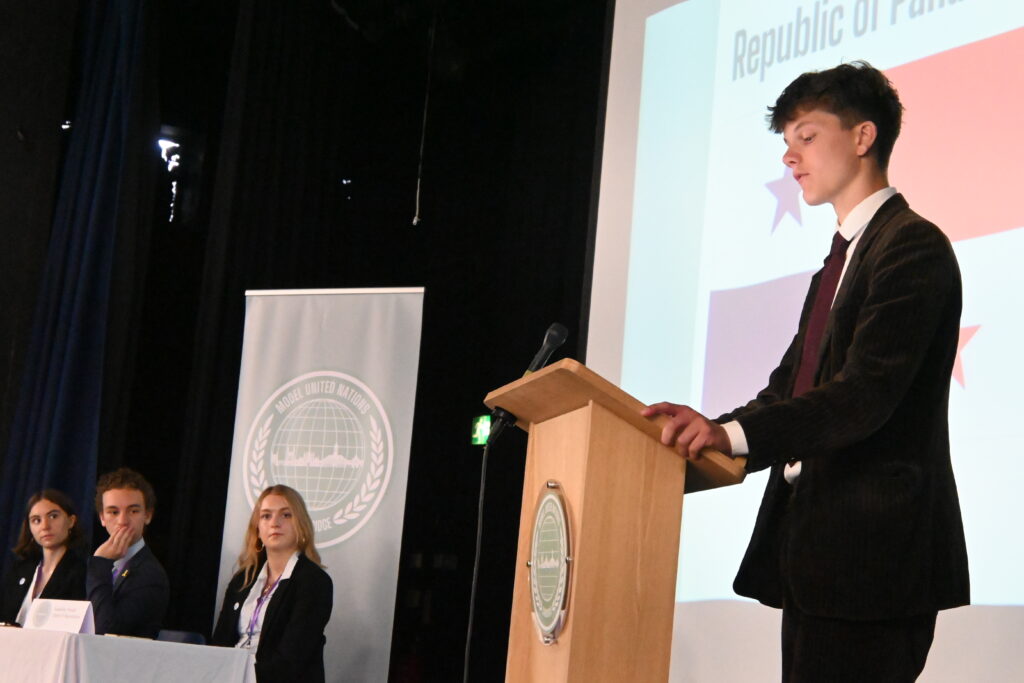
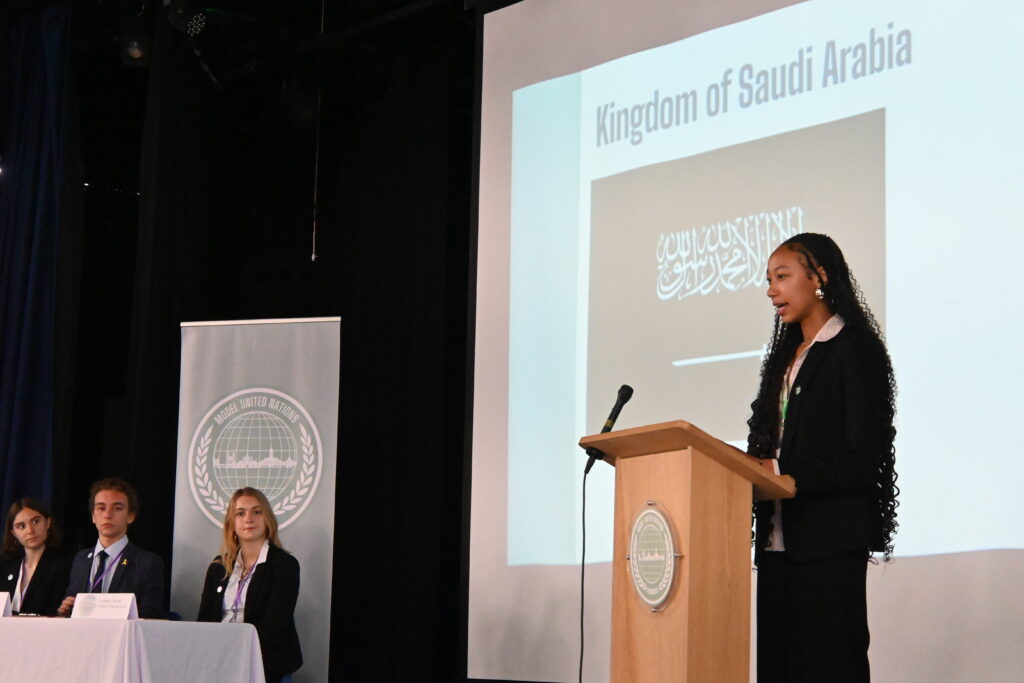
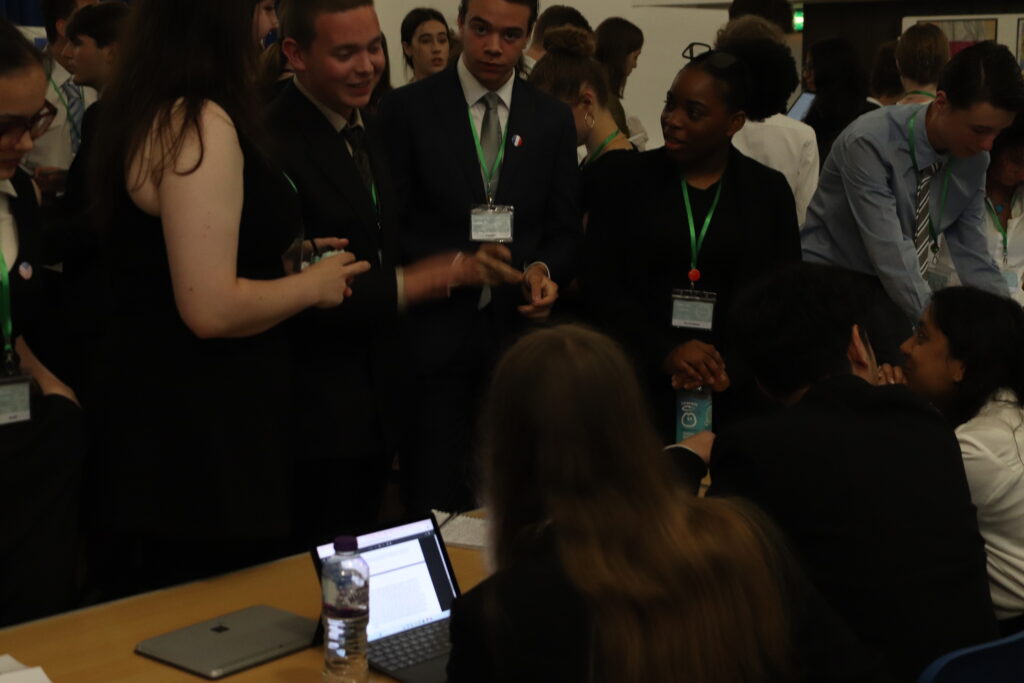
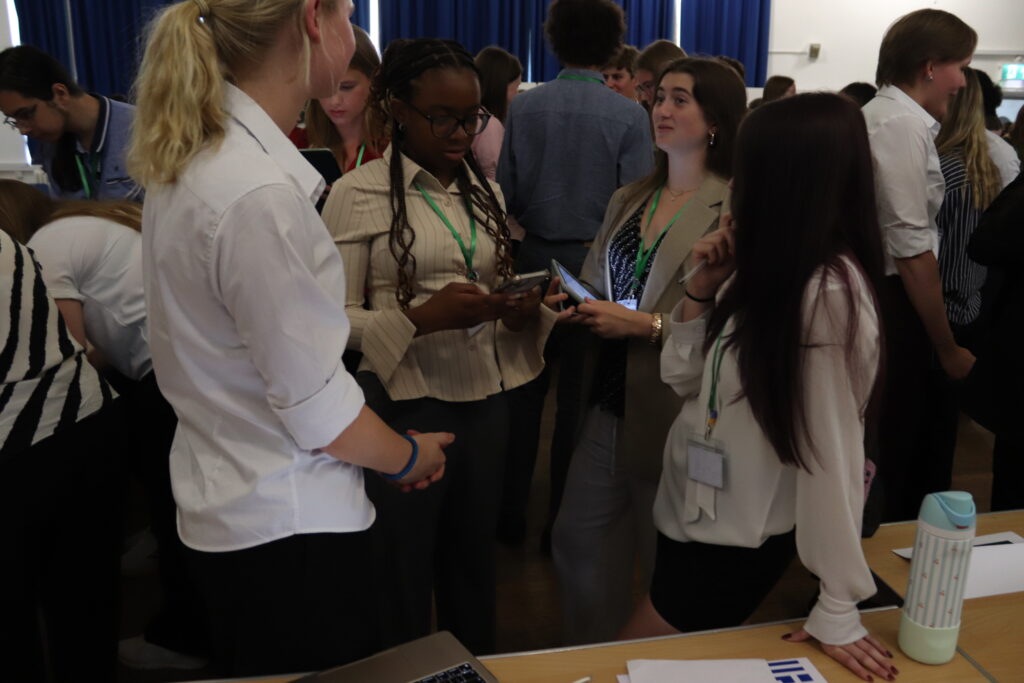
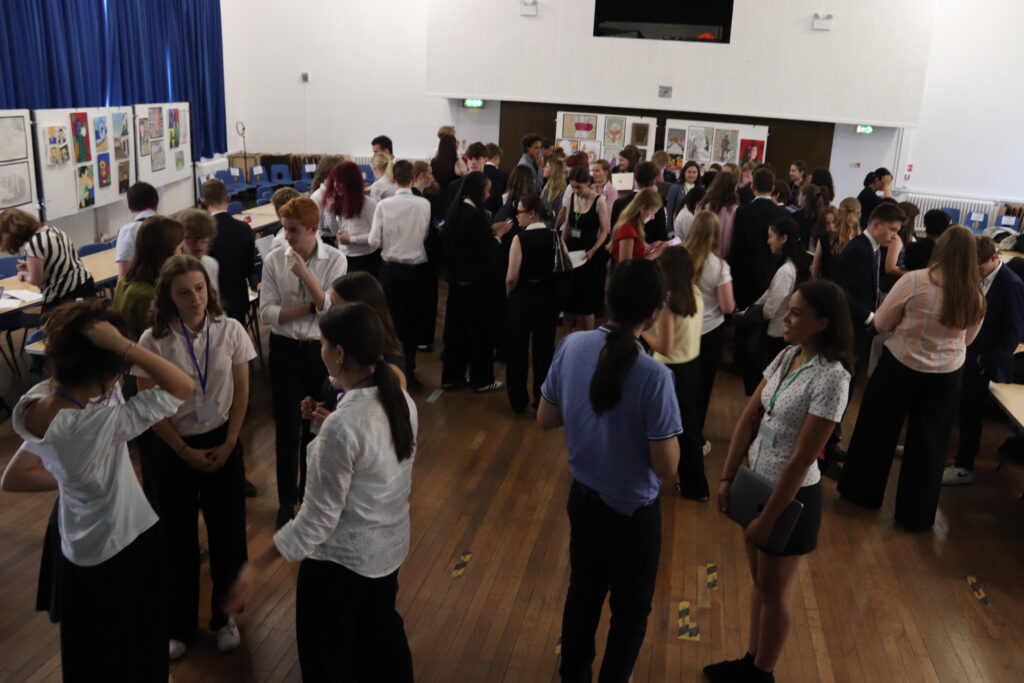
Lobbying
During recent lobbying at the Model United Nations of Cambridge, delegates undertook division on international issues, including the Cyprus dispute, the Israel-Palestine conflict, and nuclear access. Countries defended their positions while seeking support for draft resolutions.
Turkey affirmed its support for the freedom and selfdetermination of Cyprus, expressing concerns about Turkey’s approach to minorities when asked by a member of Press “So you don’t care about minorities” and they replied “Yes”, suggesting that Turkey does not prioritize its majority population without regard for minority rights.
Saudi Arabia voiced support for a two-state solution but acknowledge funding Israel, leading to a contradiction in their claims. This was justified by highlighting contributions to humanitarian aid and global health initiatives.
Israel argued that false information about its legislations is often spread internationally, proposing that the most reliable information regarding their policies should be governmentally provided. This rose concerns over biased narratives that they claim were due to the widespread opposition in the UN that lead to misinterpretations of their actions. Meanwhile, Pakistan rejected accusations of aggression, insisting that their actions are defensive, as well as, criticized India’s control over Kashmir.
Iran called for an end to nuclear bombings in the Middle East and stressed the need for nations to remain organized in their weapons policies, emphasizing national sovereignty.
The United States reaffirmed its partnership with Israel to combat political corruption and disclosed ongoing discussions with China on nuclear disbarment. The US additionally agreed with France that the European nuclear umbrella poses risks to global security.
The session highlighted enduring divides among delegates on issues of sovereignty, security, and humanitarian responsibilities underlining the challenges the international community faces in achieving general agreement.

